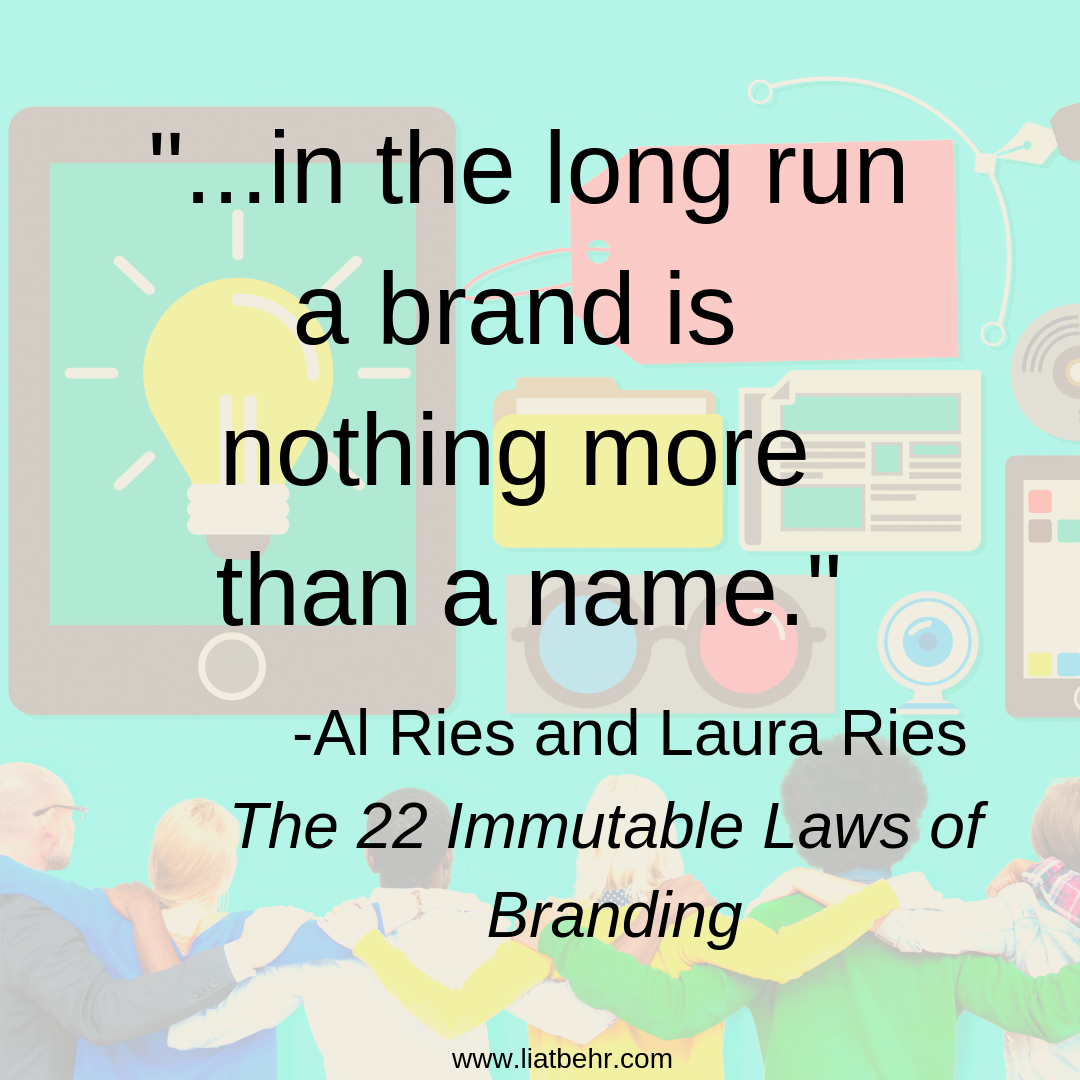Your brand is more than just your reputation; it is the emotional bond you have with your customers.
This might sound far-fetched. But just think about how you feel about your favorite brand and what makes you keep coming back; it’s all about emotion.
Having your own business doesn’t necessarily mean you have a brand. A brand must be consciously built and nurtured. It must be built around values.
And while we may have built a narrative for our brand there are other crimes we may commit that harm it. In this post, I’ll explore a few of these crimes.
Not having a brand name
It’s hard to have a brand if you don’t have a name that is recognized. In The 22 Immutable Laws of Branding, Al Ries and Laura Ries identify two stages in the making of a successful brand:
In the short term, a brand needs a unique idea or concept to survive. It needs to be the first in a new category. It needs to own a word in the mind.
But in the long term, the unique idea or concept disappears. All that is left is the difference between your brand name the brand name of your competitors.
When a business has created a brand name it has formed an identity in the mind of the consumer.
The most powerful brands names are those that represent a category. Think: Coke, Kleenex, Band-Aid, Jello-O, Tylenol – to name a few.
If your company’s name isn’t recognized, you don’t have a brand.
Giving your brand a generic name
Before the age of the internet, I don’t think anybody would have thought that a generic name like “shoes” could be a brand name. But for some reason, with the birth of the internet some thought this could be a good idea and bought the generic names of websites thinking that somehow it could be effective.
I can try to explain why generic names aren’t a good idea or I can try to explain it with this chart.
| No identity | Identity |
| www.books.com | www.amazon.com |
| www.telephone.com | www.att.com |
| www.university.com | www.harvard.edu |
| www.alcohol.com | www.bacardi.com |
| www.cars.com | www.edmunds.com |
Name = identity. Generic name ≠ identity.
Not making a promise
A strong brand makes a promise. It lets its customers know what experience or benefits it can expect. The brand language it uses and its messages will all back up that promise. However, If consumers know a brand promise is empty, they’ll just scoff at the disconnect between the message and the actual customer experience.
And while creating a promise can be challenging, not having a brand promise means that you do not have a brand.
Not investing in brand language
Whatever it is your business offers, focus on your ideal customer. A solid brand is built on values and concepts that are expressed through words. These words reflect your brand and paint a picture in the mind of your consumer. Words matter.
Sure, a winning slogan is great.
But it’s not just about a slogan. It’s about the concepts and ideas a brand reflects to its users. These must be understood and eloquently expressed. This is not trivial.
As a copywriter, I help companies develop their brand language. It can be for a certain brand; it might be for a specific product. Ultimately, it’s about honing in and helping my clients understand what is so special about them. Often, they know what they stand for. But they haven’t figured out how to express it clearly. And clarity is the name of the game.

